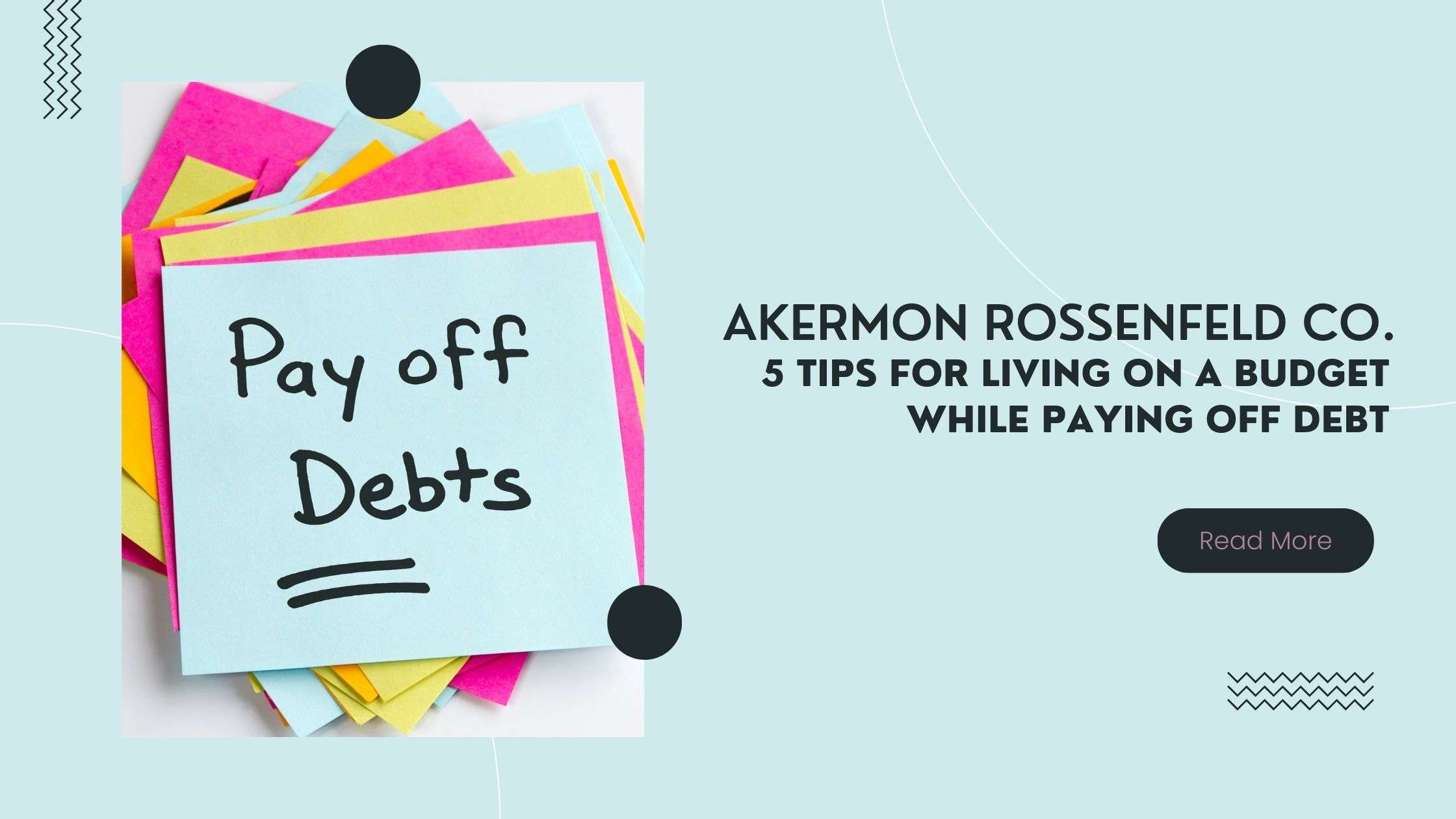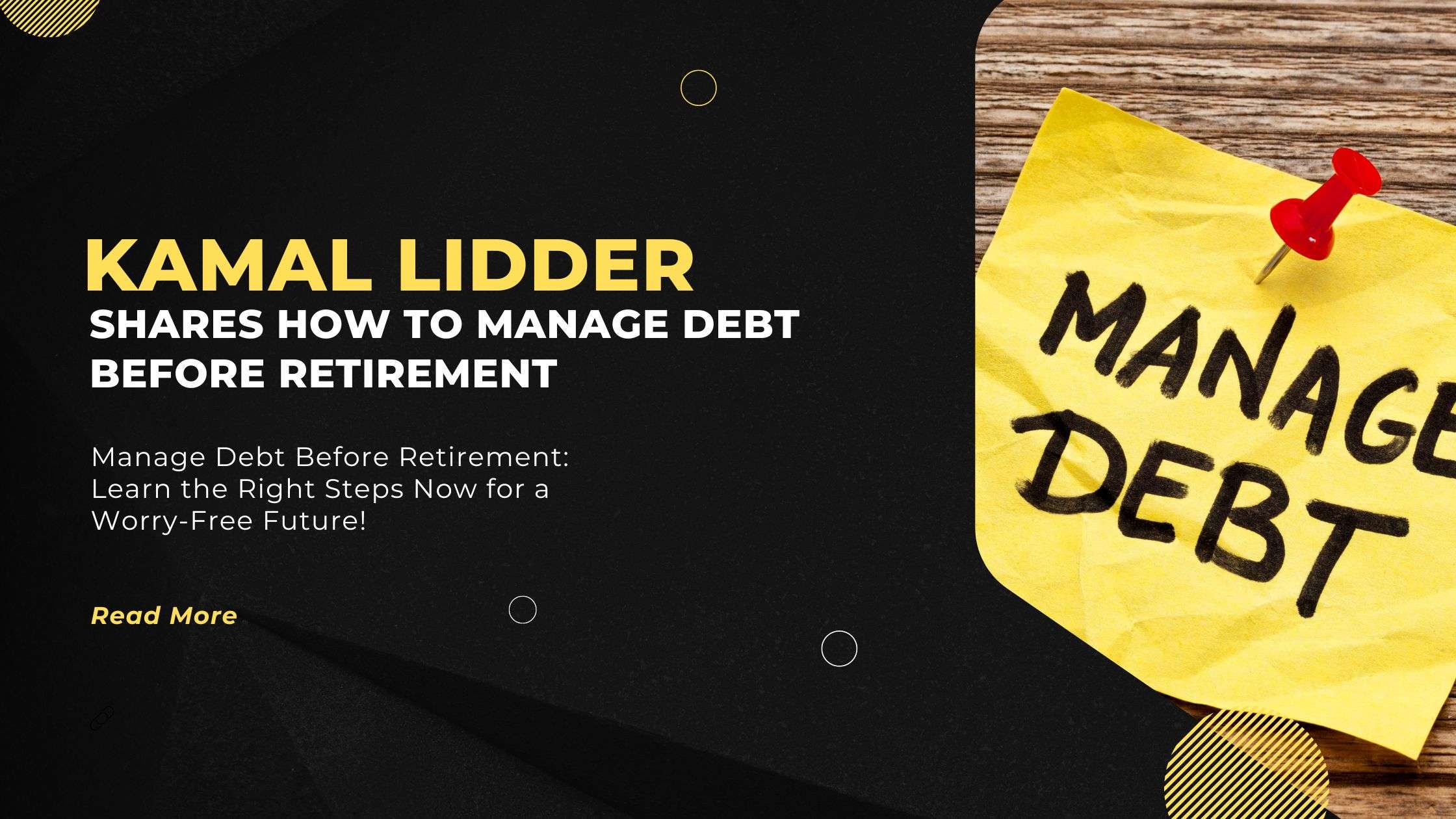Akermon Rossenfeld Co.: 5 Tips for Living on a Budget While Paying Off Debt
Paying off debt can feel overwhelming, especially when you're trying to live within a budget. However, with the right approach and mindset, it's possible to tackle your debt while maintaining a manageable lifestyle. At Akermon Rossenfeld Co., a premier debt collection agency, we understand the importance of financial stability. That's why we’ve put together these five practical tips to help you live on a budget while making consistent progress toward becoming debt-free.
1. Create a Realistic Budget
The first step to living on a budget while paying off debt is creating a plan that fits your lifestyle. Start by listing your income and all your expenses. Include fixed costs like rent, utilities, and debt payments, as well as variable costs like groceries, transportation, and entertainment.
Once you have a clear picture of your finances, you can identify areas where you can cut back. Set specific spending limits for each category, but be realistic—setting an overly restrictive budget may lead to frustration and overspending down the road.
Tip: Use budgeting apps to track your spending in real-time, making it easier to stay on top of your finances.
2. Prioritize Debt Payments
Not all debts are created equal. High-interest debt, such as credit card balances, can quickly spiral out of control if not addressed. Make it a priority to pay off these debts first while continuing to make minimum payments on other lower-interest debts.
There are two popular methods to tackle debt:
The Snowball Method: Focus on paying off your smallest debts first. As each debt is eliminated, use the freed-up funds to tackle the next one.
The Avalanche Method: Focus on paying off debts with the highest interest rates first to minimize the amount of interest you pay over time.
Whichever method you choose, sticking to your payment plan is key to becoming debt-free.
3. Cut Unnecessary Expenses
When living on a budget, trimming unnecessary expenses is essential. Small, everyday costs can add up quickly and take away money that could be used to pay down debt. Evaluate your spending habits and look for areas where you can make cuts.
For example:
Cook meals at home instead of dining out
Cancel subscriptions or memberships you rarely use
Shop smarter by buying items on sale or in bulk
These small changes can make a big difference in your overall savings, which you can then use to chip away at your debt.
Tip: Challenge yourself to a "no-spend" week or month where you only purchase essentials. This can help you identify areas where you may be spending more than necessary.
4. Increase Your Income
While living on a budget often focuses on cutting back, increasing your income is another powerful way to accelerate debt repayment. Consider taking on a side hustle or freelance work in your spare time. Even a few extra hours of work per week can provide additional funds to put toward your debt.
Other ideas for increasing income include:
Selling unused items around your home
Renting out a room or parking space
Offering services like tutoring, pet sitting, or house cleaning
By boosting your income, you can pay off your debt faster without having to rely solely on cutting expenses.
5. Stay Positive and Celebrate Milestones
Paying off debt is a marathon, not a sprint. It’s important to stay positive throughout the process and celebrate small wins along the way. Every time you pay off a credit card or reduce a loan balance, take a moment to acknowledge your progress. These milestones can serve as motivation to keep going.
If you ever feel overwhelmed, remember why you started. Becoming debt-free will provide you with more financial freedom, reduce stress, and allow you to focus on other important life goals.
Tip: Consider using visual aids like a debt payoff chart to track your progress. Seeing the balance decrease over time can be incredibly motivating!
Conclusion
Living on a budget while paying off debt doesn’t have to mean giving up your quality of life. By creating a realistic budget, prioritizing your debt payments, cutting unnecessary expenses, and even increasing your income, you can take control of your finances and achieve your debt-free goals.
#budgetingtips
#debtfreejourney
#savemoneylivebetter
#payoffdebt
#smartspending
#financialfreedom
Visit:- https://akermonrossenfeld.hashnode.dev/

 News Feed
News Feed  Albums
Albums  Popular Posts
Popular Posts  Memories
Memories  Pokes
Pokes  Blog
Blog  Market
Market  Directory
Directory  Events
Events  Games
Games  Jobs
Jobs  Offers
Offers  Find friends
Find friends  Common Things
Common Things  Fundings
Fundings 